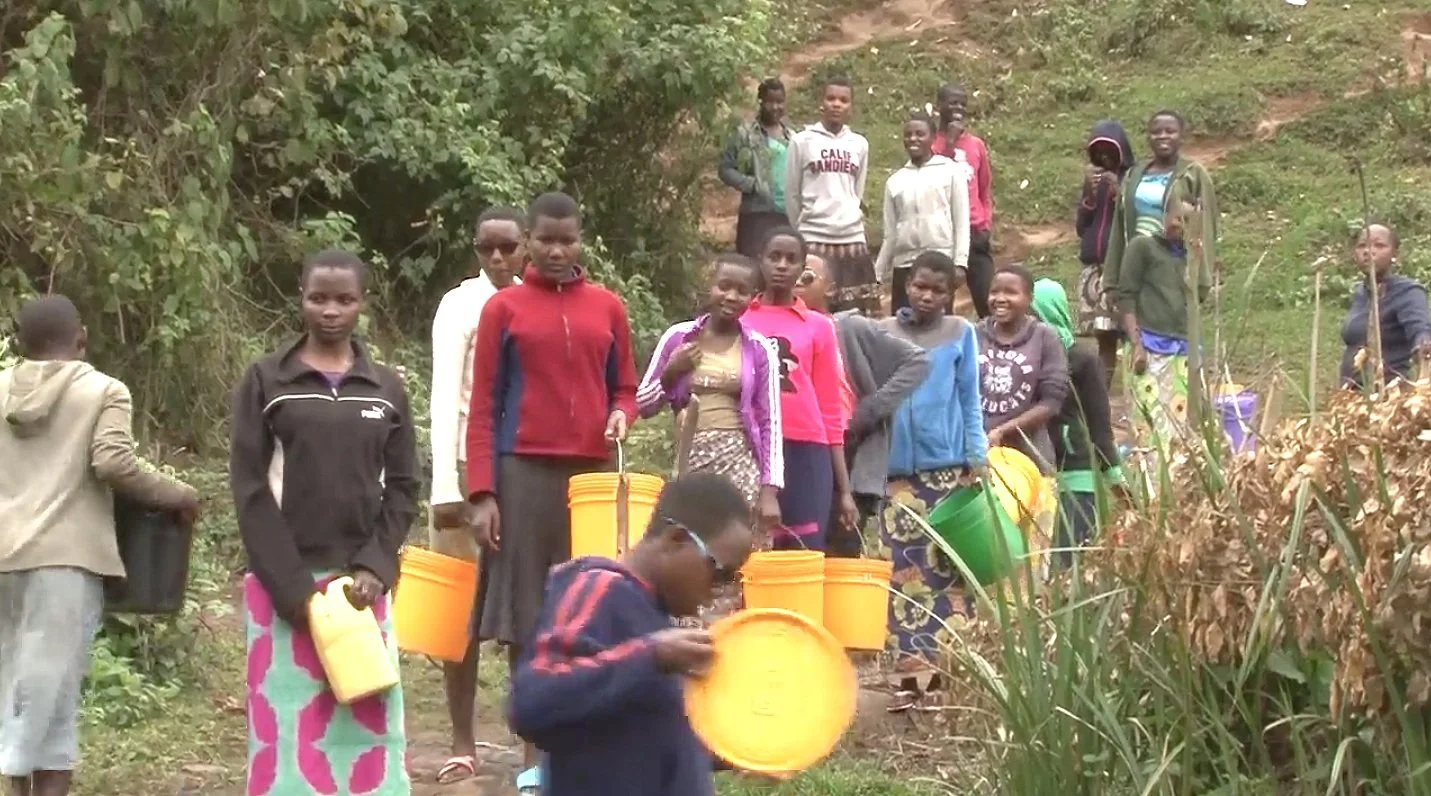“Life Is Paralyzed” - Daily Life At Rubanga School, Part 1
Rubanga School is a secondary school in rural Matana Colline, Burundi, respected for its academic rigor – students must pass national examinations to be admitted. The school previously piped water in from far away sources, and their water infrastructure included a large tank and many taps in front of the school for general use. For the 900 boarding students who live here, and the faculty and staff who support them, the problems began when those water sources became less reliable. Now the tank is empty, and the taps are dry.
Students and staff must travel two miles round trip to the village tap to fetch buckets of water for their daily uses. This tap is nothing more than a piece of PVC pipe, dripping out a slow stream of untreated water. Essentially an entire town - 900 students plus another 600 residents - has a single tap to address all of their water needs. There is no running water or indoor plumbing anywhere in the area.
The lack of clean water affects every aspect of school life, every single day.
Education
Perhaps most critically to their educational goals, students are spending vital studying time fetching water. “The average student is losing two hours per day of instruction and study time,” says Rubanga School headmaster Alois Ndayirukiye.
“We had water at the school, that was coming from far away,” he says. “But there started to be problems along the way, and some of those sources dried up.”
Since water is no longer available at the school property, the students must make the hilly trek to the single water source first thing in the morning in order to have the water they need for their day.
School hours start with mandatory study time at 6:00 am. “We have to fetch water before we can go to study,” says student Divina Akimana. “It’s crowded at the water source first thing in the morning, and that complicates how long it takes for us to get back.”
Students simply have no way to estimate ahead of time how many other people from the area and surrounding community will be at the tap in the morning. Once they get there, there are no corners to be cut – it is a first-come, first-served situation. All they can do is wait for their turn to slowly fill their buckets, and then begin the mile climb uphill to return to school.
“Our grades have dropped because we are so often late back to school, and the teachers take points from our grades. We don’t know how long it will take to get water. It’s very slow and we end up being late,” says Divina.
In addition to studying time, other aspects of student life are also completely disrupted due to lack of water. Student Adronis Niyonsaba, who is studying science research, plays sports with friends on the weekends. “We have difficulty getting clean after we play, because it is so hard to access water to shower,” he says.
The lack of accessibility to fresh water affects all aspects of school life. “When we go collect water from the valley, studying is limited due to wasted time fetching water,” he says. “Life is paralyzed.”
“Kids are not focusing on studies and instead are forced to focus on chores,” says Alois Ndayirukiye, the headmaster. “We are managing, but due to lack of water, we have had to split chores between the staff and students.”
“For example, because it takes the kitchen crew so long to fetch the water needed to prepare meals, the students have had to take over the job of getting water to clean themselves and clean their classrooms,” he says.
Find out how we helped this community with a new water system, and learn more about how to help other schools like Rubanga.







